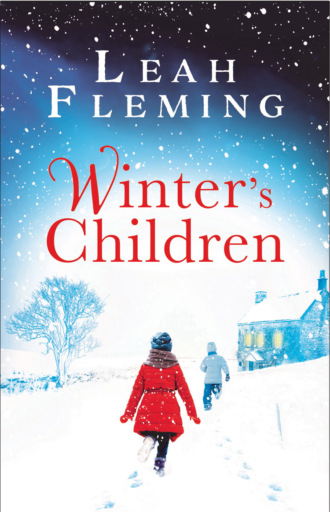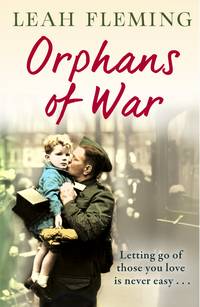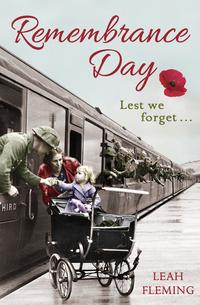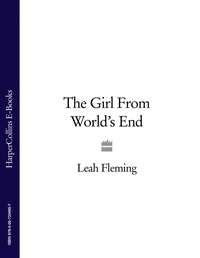
Полная версия
Winter’s Children: Curl up with this gripping, page-turning mystery as the nights get darker
‘What’s it now, Mother? If it’s another rep … put them off again!’ Nik yelled, bending under the lintel of the back kitchen scullery door, unpeeling his waterproofs and muddy boots. His mother was standing in his kitchen with a mug of coffee. She usually kept to the front portion of the old house, looking south onto the garden – he kept to the rear with ready access to the courtyard and outbuildings. He looked at his watch and supposed it was time to set aside farm chores in favour of a scrub and polish, ready for the funeral.
His mother was looking flustered, already dressed in a navy two-piece wool jersey suit. ‘Would you believe it! That was Stickley’s. They’ve got us a winter let for six months … someone from the Midlands saw the house on their website and booked it up on the spot. They’re on their way. Fancy, a winter let out of the blue after all this time.’ She made her way to the ironing board, which always sagged under a mound of creased washing.
‘Honestly, Nik,’ she said, looking around. ‘If you think I’ve got time to do this load … Get your skates on and shift yourself … I hope there’s a decent shirt among this pile. I’m not having you turned out like a crumpled rag, not with half the county coming to see Jim off. Can you bring me in some logs before you shower?’
Nik grunted, banging his boot across the stone-flagged floor, sending the house dog, Muffin, a collie cross, scurrying for cover under the table.
‘Who on earth would want to come up here in this weather? I thought we’d told them to hold back on lets. It’s been empty all summer. It’ll need a good airing.’
‘Don’t look a gift horse, Nik. Be thankful for small mercies after the season we’ve not had. Shift yerself and fill the log basket, turn on the water for me. They’ll not be here until late, and I’ve got Annual Parish Survey meeting tonight so you can let them in when they arrive.’ She paused, looking at him. ‘And no scowling. Be civil.’
Nik was watching his mother glancing around his living room with dismay at the unwashed pots in the sink, the grubby tea towels and the cluttered table, but she buttoned her lip. This was his half of the house and how he organised his affairs was none of her business. Washing up and clearing away was women’s work, he muttered, and he’d no mind to change his old ways. Ever since Mandy left him years ago, this back-to-back living suited them both. The hall door was their own Berlin Wall, dividing north from south, mother from son, chalk from cheese, Mozart from Bach.
Nik could see she was itching to clear up his mess and put the room back to times past when you could lick your porridge from her shining floor, but there was no time for arguments if they were to sort out the Side House and make the service on time. Damn the estate agents for conjuring up this holiday let out of thin air! Perhaps Bruce Stickley had a conscience after all and was trying to make up for that insensitive intrusion.
‘We spend a fortune doing up that barn and now you grumble because it gets let out. After the summer we’ve had, we should thank the Good Lord that we still have this asset left,’ she added.
‘Yes, and look what it cost us!’ Nik thought of the antiques they’d had to sell to fund the project. ‘I don’t like townies cluttering up the place, leaving gates open and asking silly questions.’ He did not want any post mortems with strangers, their pitying glances when they realised what had happened. He had good reason to hate what the summer had done to farmers. Was he not burying one of them that very afternoon?
‘Bruce Stickley gave good advice when he suggested we went for a top-of-the-range conversion: double glazing, central heating. We’ll be getting top whack for the let. It has a view second to none down the valley. There’s no pleasing you, son,’ Nora snapped. ‘It’s the only decent investment we’ve got left apart from the house. If we decide to sell up–’
He did not want to hear another word about selling up. ‘Stickley’s not having the house. Over my dead body! I know what he’s really after; soft-soaping you with a good letting, for once. He’s got his eyes on Wintergill for himself, always has had … He’ll slap planning permission on every bloody barn, shed, nook and cranny, strip the assets and keep the real prize for himself. I know his little tricks.’
Nora knew he was right. ‘Bruce has a point, you know,’ she replied. ‘This place is too big for the two of us. We rattle round like dried peas in a drum. What do we need twenty rooms for? It’s not as if–’ She stopped abruptly. ‘You know what I mean.’
‘Stop that, Mother. Wintergill House has been in this family for generations and I see no reason to change. Snowdens have made a good living from this land. Peaks and troughs, ups and downs, this is just a bad patch but we’ll survive,’ he argued, standing his ground.
‘Do you really think so in this climate, son? Be reasonable. I’m getting too old … I’m the wrong end of seventy and you’re not getting any younger … Who’s going to follow us then?’ She paused for breath, sensing this was not the time for recriminations. There were no other Snowdens left to inherit … ‘Rationalisation is the word on everyone’s tongue,’ she continued. ‘It makes common sense to take the money and run. We’ve got choices now. You haven’t decided on spending anything yet.’
‘That money stays in the bank for restocking and I don’t intend to restock until I’m sure where I’m going,’ Nik argued. ‘I’m not listening to your doom and gloom; I’m off for a quick bath.’
‘What about the logs?’ she shouted up.
‘Later, there’s plenty of time,’ he replied, bounding up the stairs, peeling off his clothes as he went in search of his dark best suit, peering at his outline in the tallboy mirror. He paused to examine his torso: not in bad shape at all, broad shoulders, not much of a beer belly when he stood sideways, strong haunches, muscular legs from years of rugby, and a decent set of tackle in fine working order but underused lately.
He would still make a good tup! If only he had sired a son to pass on the name and the heritage. How could Mother begin to understand how he felt about this house, the farm and its land? The love of it was bred in his bone. Damn it, this was the only thing he had left to love!
Nik dipped his head in the lukewarm water to rinse off the shampoo. If only there was a son to follow him, but he’d left it a bit late now. Oh, Mandy! I thought you were the one … He’d met her at a Young Farmers’ ball in Harrogate. She was a hairdresser out for fun, dancing on fire with gorgeous black hair and a figure to match. It was lust at first sight. She’d been dazzled by the size of the farm, enchanted by the James Herriot setting for a while until the reality of this life dawned. They married in haste, too young and love blind to the fact that their worlds were too far apart to make a lasting relationship work.
Nik shut his eyes to block out the image of her in the barn with her legs coiled round Danny Pighills’ waist as he pumped himself into her. If his gun had been handy he’d have shot them both like vermin. He’d torn them apart and given Danny such a beating. He wasn’t proud of himself but he was drunk, shamed and humiliated. She’d left that night and returned only for her clothes under armed guard. It was all around the district that Nik Snowden couldn’t keep his wife. He was deeply hurt by her rejection of all he held dear. The bitterness he’d felt then had eased to a dull ache of regret. He had not heard from her in years.
Now he was resigned to the single life – once bitten and all that … Occasionally there was a fling with one of the pub crowd but nothing serious. He was never in a sound enough financial position until now to take on another partner, and he was wary. Women were not to be trusted. The world around had changed since his youth, when farmers’ wives knew their place. Now they ganged up together and argued their corner, demanding equal shares in the business and working outside the farmstead just to keep their kids clothed and heeled. In his heart he knew that such women deserved respect but if the truth were told, the confidence of some of those brass-faced lasses scared the pants off him!
Now Jim Grimoldby’s sudden death had shaken his faith in his own judgement. There he had sat, on the same bar stool at the Spread Eagle with his old school mate for years, moaning on about Defra and all the EU regulations, working out plans for their compensation, laughing at Jim’s terrible jokes, playing darts, the occasional game of rugby, while Jim was going through hell.
You never knew what was going on in someone else’s head. That space between the ears is always a lonely place, he thought. Was it just depression at the sight of his sheep culled, too much to drink, or was it utter weariness with the whole damned shooting match that made his friend walk onto the moor with his shotgun and blow his head off? What sort of friend had he been not to recognise such despair? There’d been enough leaflets and confidential phone numbers to ring for counselling but Dalesmen are proud and stubborn – shy of talking to strangers, however well-meaning.
Brian Saddleworth had had a stroke when his stock was taken out, and was selling up. Poor Nigel Danby was in the last stages of lung cancer and in no fit state to carry on. It had been a bad year for the dale farmers on top of foot-and-mouth. So he must stomach this coming intrusion and think about the monthly rental cheque. If his father could see the state things had got to … Tom Snowden once refused even to consider bed and breakfast as a small sideline. Now every farm had a sign at the lane end. That was, until the blanket closure of every footpath, and the walkers all but disappeared.
When he thought how they had slummed it over the years in this cold barn of a house with its winding oak staircase, dark panelling, mullioned windows and ancient furniture. It didn’t seem right to sell off their heirlooms to help fund a project that would have their guests living in a luxury his own mother had never enjoyed.
Old Joss Snowden, Nik’s great-great-grandfather, would be turning in his grave if he knew what he had done. If truth were told, he’d been dipping into the family silver for years, oak settles here, a piece of silver there, topping up his losses. It couldn’t have gone on for much longer. Now there was money coming out of his ears and Stickley was suggesting they sell the place, lock, stock, to some London magnate for a shooting lodge, though even the grouse here were thin on the ground in this grim weather. Who would want to take on this albatross?
Sandringham it wasn’t – more like Wuthering Heights on a bad day – but he loved every wooden nail of it. It was his castle and his domain, his kingdom. There’d been a dwelling here since before recorded history. He was always digging up shards of Roman pottery, Celtic pin brooches, clay pipes and medieval tiles and coins. Nik had quite a collection stashed away somewhere.
The rear of the house went back to the fifteenth century, with its arching roof timbers. Nathaniel Snowden had added to the house in the seventeenth century: sturdy rubble-filled walls and square neat windows befitting the Puritan gentleman. Then his grandson Samuel restored the fortunes of Wintergill with the purchase of enclosed land, rebuilding the house looking south down towards Pendle Hill and the River Ribble. He had sired sixteen children, ten sons to expand his fortunes across the globe.
Then came George and his son, Joss, and his son, Jacob, the teetotal Methodist whose festive spirit was the talk of the dale, who prospered when Victoria was Queen. All of them had built on the strengths of their forebears, all were famous for their hospitality and open house. Grandpa Jo lost three sons with the Yorkshire Light Infantry and Tom, Nik’s own father, had ploughed a straight furrow for the war effort in the forties, seeing some of Wintergill’s most prosperous years.
How could he now be the one to finish them off?
Nora couldn’t settle while Nik was in the bath. She opened up the Side House, put on the heating and brought the linen down from her own airing cupboard. There would be time after the funeral to buy some bread, milk and flowers for the welcome basket. It was such a long time since the last let that she was nervous.
Now she was sifting through her glove box to find a leather pair big enough to hide her gnarled fingers. No one wore hat and gloves much to church, but she believed a woman was undressed without them. She sat at the dressing table stool, staring at her hands.
What a sturdy pair of friends these had been over the years, grasping the hind legs of newly delivered calves, planting vegetables, pickling fruit, plucking feathers, grabbing sheep, soothing sick beasts and children, grasping reins, steering wheels, holding the hands of the dying and whipping up the best sponge cakes in the district.
Now they were gnarled and horny, coarsened by wind and rain, with mottled liver spots, as wrinkled as cooked apple skins. They were long and square with over an octave span: more a man’s hand than a woman’s. No amount of elderflower and lanolin ointment would alter that.
Her dad’s only compliment on her marriage to Tom Snowden over fifty years ago was to look at her hands with pride. ‘You’ll earn your keep with those spades,’ he said. By then any dreams of further education and foreign travel as far from Scar Top as possible were blighted by war and the sense of duty that sent her scurrying back home to do her bit. There was never choice in the matter when Ben Frost, her dad, gave his orders.
As a child she had lived off the moor, boarding in school houses in the town to attend the local girls’ grammar school, matriculating with honours with a place at university a certainty. Then war broke out and it was all ploughs to the furrow, trying to grow arable crops on wet, sodden hilltops. There was no time for regrets when there was a nation to feed.
Where was that nation in the last few years when their produce was bottom of the heap of imported meat? When fleeces lay rolled in the shed and lambs were not worth the slaughter – and as for the poor pig farmers … If only supermarket shoppers would buy British then this terrible disease might not have happened.
Once upon a time it was one sheep, one lamb, one acre but the temptation to intensify had taken over. There was little humanity in farming – not a local abattoir left in the district but a plethora of regulations and directives. Now nature had had the last word. Suddenly her hands started to twitch again as she fingered a silk scarf from the bottom drawer.
Every Christmas for forty years, one new scarf was added to her collection from Tom. He was not one for lavish presents or romantic gestures. They weren’t bred like that in the Dales, but what he bought was always quality and long lasting so she picked out a navy and lilac stripe, not too flashy for a funeral. No one bothered much with full mourning but it was right to make the effort. The old-fashioned symbols were long gone: mourning veils to hide your tears, black armbands, funeral cards and mourning wreaths on the door, curtains closed in respect and hats off as the cortège passed. She would wear a hat out of respect and make sure that her son was decently dressed for the occasion.
There was a time when Nik was one of the smartest, handsomest young men in the dale, with his rugged good looks. He reminded her so much of Tom in his prime; the man who stopped her heart with one of his grins and his blue, blue eyes. If Nik’s shoulders were stooped now it was for good reason. Worry was weighing them down. He was fighting a lost cause and she feared trying to hold back the hungry tide. This afternoon he must shoulder his friend’s coffin to an early grave.
Jim’s suicide brought the pain of the collapse of their industry right to their doorstep. There was anger and confusion. If the vicar doled out any platitudes in his service, she
would lynch him personally. She was not on familiar terms with their new vicar, being more a Mother Earth than God the Father believer, but she would attend high days and holy days as neighbours must, to honour the dead and their living. Solidarity was the word they bandied about but actions spoke much louder.
They would bounce down from the tops to the church by the gill, with its stream coursing down the rocks that gave their village its name, and park Land Rovers and pickups where they could. There would be tea and sandwiches in the Spread Eagle, and the women would crack and gossip until it was time for evening milking and farm chores, but there were gaps now to fill in the farm routine. She powdered her red cheeks mapped with red veins. She had not missed doing her own farm chores one iota.
How she longed for a cottage down by the village beck, centrally heated, draught free, with lamps lit in the dusk and a good fire. She would soon get her energy back if she had only a small house to heat and clean instead of this barn. Lately she had found herself dosing off in the afternoons over her reading, breathless at the slightest exertion, but now was not the time to moan about her health when there was a young man in his forties, leaving a wife and children to bury him.
The service was mercifully short. She had to admit there was dignity in the old Prayer Book proceedings. It carried the distraught family through the ordeal. Even non-believers could take refuge in its language. Nik stood grim-faced, supporting the widow as the mourners stepped out into the autumn wind and rain towards the burial plot.
She did not want to see the look of incomprehension on Karen’s face as she gripped her sons in anoraks. The farm hand had found Jim in the field with a note thoughtfully pinned to his jacket in a plastic freezer bag. He was a proud man. He wanted to free his children from the curse of being farmer’s sons. This was his only way out, but what a legacy for his poor kids. The mourners gathered awkwardly just as the clouds parted and the sun glinted for a second, bathing the stone walls in a soft pink light.
It was more an afternoon for a ramble across the moor, if only the footpaths were open, than the burial of a young man gone mad with fear of failure. Nora stood silently for the final part of the ceremony, knowing a little of the grief Karen Grimoldby must be feeling. Time was not a great healer. It just took the edge off some of the pain so that you could breathe and carry on. The pain would never go away.
She was not one for small talk. Women had to be brick walls when it came to their children, appearing tough and hard. Family was what mattered most, she believed. If you indulged your unhappiness then it would linger longer. Feelings were best kept under control.
There would be time later to take Karen a plate pie and a tin of flapjack for the twins. When the sympathy letters were answered and the funeral expenses paid in the months to come – when winter held them in its iron fist– that would be the time to bob in and encourage the girl. That was when the chill of grief took its hold on a woman. Karen would be selling up and moving away, and another farm would be broken into lots to be bought as a holiday cottage for some blessed offcomers.
She turned towards the corner of St Oswald’s that would always be her own. All that was once precious to her was buried there. There were just two simple headstones with Latin inscriptions.
‘Nos habebit humus.’ Earth will hold us.
‘Mea filia pulchra.’ My beautiful daughter. Latin was such a dignified language to hide one’s grief in. She didn’t want the world to read her sorrow. It was enough that Father and child were together under the maple, Acer pseudo-platanus ‘Brilliantissimum', that fired each spring.
Farmers were used to death and the cruelty of nature, she mused. The hooded crows pecked out the eyes of newborn lambs if the ewe did not birth quickly enough. Foxes tore the heads off them for fun. Nature separated the weakest and picked them off, but this contagion levelled all in its path. Only the fit would survive the rigours of this coming winter.
Tom had a decent span, Shirley did not. She never talked about it much. What good would it do? There was no point in weeping and wailing and falling apart when there was another child and a farm to run. Sorrows were best kept in the family under lock and key. That’s why offcomers often called Dales folk cold, unfeeling, a subhuman species, impervious to suffering, but Jim’s death and foot-and-mouth showed otherwise. Underneath the weatherbeaten faces assembled on this bleak afternoon were the same fears and sorrows. Farmers had their own ways of dealing with them. Some took to religion or drink. She was the worst of all when it came to bottling things up.
‘Sad business is this, Mrs Snowden,’ whispered Bruce Stickley in her ear, looking every inch the successful country land agent in his navy Crombie coat and knife-edged trousers. She never trusted a man who had time to put his trousers in such a shape. But she nodded quickly and looked away.
Bruce Stickley was quick to strike up conversation these days. ‘It makes you think what’ll be happening next, doesn’t it?’ he continued. ‘Soon there won’t be any farms to manage, if this climate continues. You’ll be the last farm left in the dale.’
Nora shrugged in reply.
‘Don’t look so worried,’ he continued, oblivious to her disinterest. ‘You’ve got one of the most sought-after properties in the Dales with those three magic ingredients.’ He grinned.
‘Go on, surprise me,’ she quipped sharply.
‘Location … location, location,’ he replied. ‘There’s nothing to beat a south aspect, a hilltop view and a splendid array of ancient buildings to create interest in a sale. You’d get a tidy packet for all of it, even in the condition it’s in. If ever you think of selling I hope I’d be your first port of call.’
If she’d been a man she’d have socked him in the bollocks just to wipe that smug expression off his greasy face: odious little man with his slicked-back hair and hooded eyes. He thought he was the bee’s knees, but he was nothing but a blowfly feeding off a carcass. ‘This is hardly the time or place,’ she sniffed haughtily, piercing him with her icy stare.
‘Of course … but I just wanted you to know,’ Stickley countered with about as much sensitivity as a wolf on heat.
‘What gives you the idea we’ll be selling up?’ she snapped back.
‘With Nik having no one to take over, and the change in your circumstances,’ he answered, not so sure of his ground now.
‘So?’
‘I know how it is for hill farmers now. I saw Nik at the diversification lecture. Have you thought about developing the other barns?’
‘What we decide to do is none of your damned business, young man,’ she snapped. ‘Like father, like son, so I see. I knew your father. He always drew a hard bargain, always on the lookout for something cheap or run down. You’ve done well out of other people’s sorrows over the years … We’re here to honour a poor man who couldn’t take any more bad luck, not to do deals over his corpse. Show some respect!’ She turned her back on the estate agent and made for the open grave to throw her handful of soil into the hole. She did not want Bruce Stickley to see that his words had hit home.
So the news was out that they were hovering on the brink of a decision like so many here today. You need only be seen going into the estate agent’s office on market day for nosy parkers to put two and two together to make five. Nik was right: Bruce had an eye on their house for himself. Well, tough, she’d rather sell it at a loss than allow him the deeds.
Конец ознакомительного фрагмента.
Текст предоставлен ООО «ЛитРес».
Прочитайте эту книгу целиком, купив полную легальную версию на ЛитРес.
Безопасно оплатить книгу можно банковской картой Visa, MasterCard, Maestro, со счета мобильного телефона, с платежного терминала, в салоне МТС или Связной, через PayPal, WebMoney, Яндекс.Деньги, QIWI Кошелек, бонусными картами или другим удобным Вам способом.






